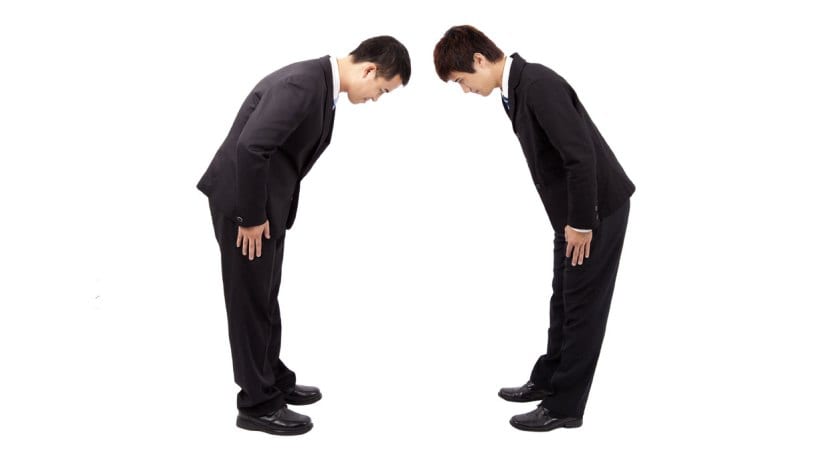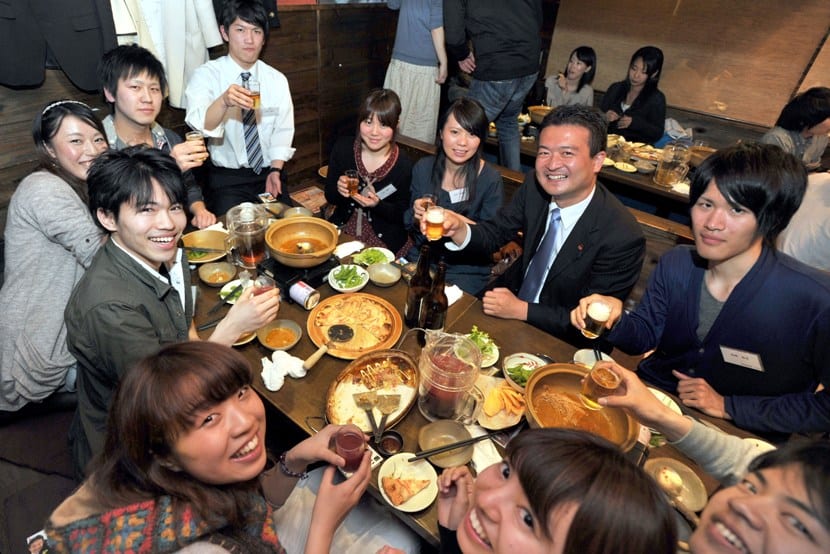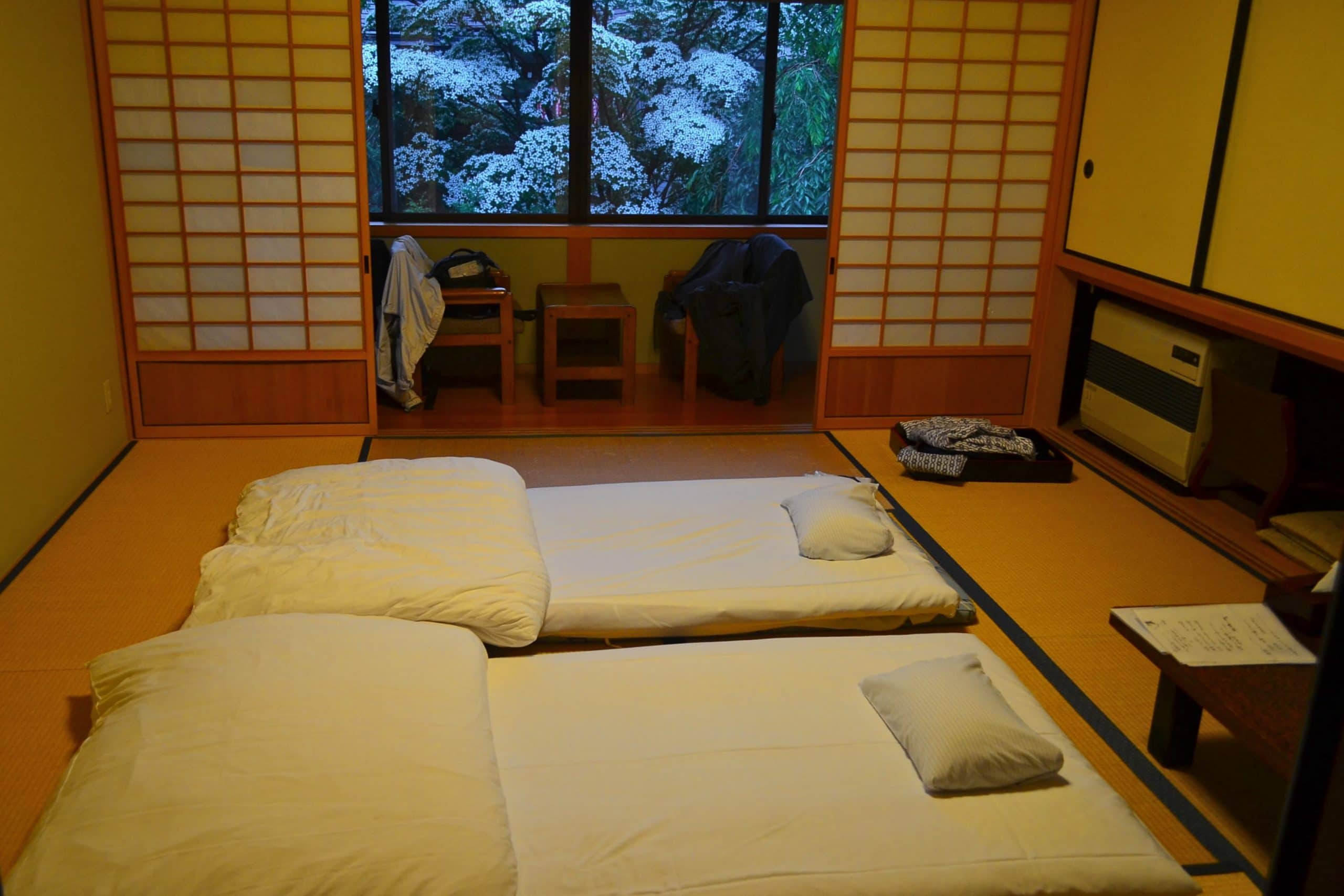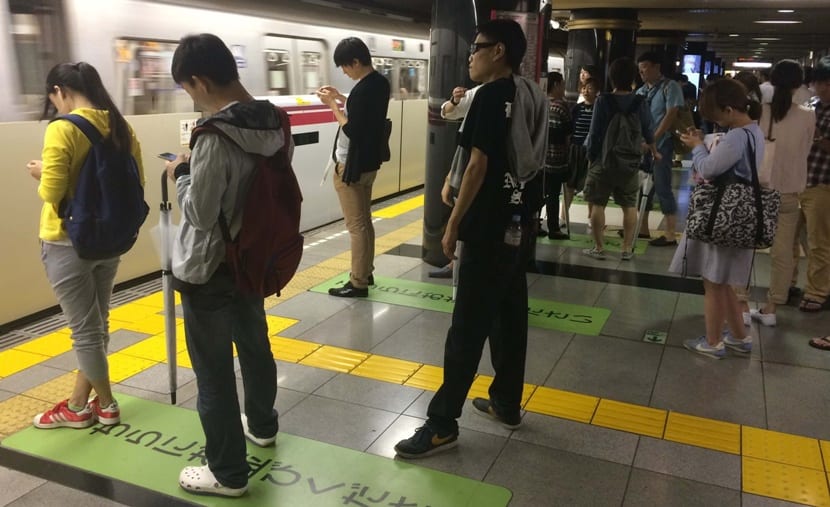
Traveling itself is already quite an experience, but if you also do it to a culture as different from ours as the Japanese, then you will make your vacation a tremendously enriching experience, capable of “changing your head”.
If you really want to integrate minimally into the culture of Japan, you must take into account some basic education rulesThose that for us Westerners are completely assumed for them can be absolutely disrespectful, for example blowing their nose in public ... Now I will continue to tell you other curiosities about this culture whose golden rule is respect.
Protocol

Despite being a foreigner and most Japanese use our greeting code, It is important that you know that when you are introduced to someone, do not extend your hand, bowing your head is something that the Japanese value very much. Just bow your head so they feel recognized.
If you address a person, you must do so by their surname and after this add "san" for men and "sama" for women. For children, adolescents and young people you can add the suffix "chan" for girls and "kun" for boys.
Of course, as in any culture, being invited to a home is a sign of trust and pride, so don't forget to bring a gift and don't skimp on wrapping paper and decorative ribbons. They are not minimalist for everything. And by the way, hand it over and pick up any present that they always give you with both hands.
Restaurant

And now let's move on to how we should behave in the restaurant. While it is true that we almost always wait for our glass to be filled, in Japan it is absolutely necessary that someone else put the drink on us and no one starts drinking until the host, or the oldest person, says: Kampai. If you are the one who serves others, you have to leave your glass empty and wait for another diner to serve you.
Before starting to eat it is said: itadakimasu (I receive with gratitude) and once you have finished gochiso-sama (unhit) which comes to mean thank you for the food. As for making noise while slurping the noodles, or bringing the bowl of soup closer to you, go ahead with it, it's a sign that you're enjoying your food.
By the way, an important detail that I did not know, sticking the chopsticks in the rice, or passing the food with the chopsticks is related to funeral rites, so you should not do it at the table.
And do not leave a tip, yes as you read it. In Japan, tips do not exist under any circumstances, nor in taxis, restaurants or bars, in fact doing so can be a small insult. If you want to have a detail with your guide or with a person who has taken care of you especially well, it is better that you leave him a gift.
In the houses

In Japan it is customary to remove shoes when entering houses, schools and institutes, Also in some temples and restaurants, so try to wear your most beautiful and new socks. Also when you go to the bathroom you have to put on special slippers and don't forget to take them off! Because it looks horrible that you walk into another room with your bathroom slippers.
If you decide to take a bath, either in a private house, in the communal baths, or in a thermal bath, you must first wash yourself by sitting on the stool next to the shower, outside the bathtub, in order to keep the water clean and reusable, either for the rest of the family or for clients of the establishment.
In public spaces

Although it seems incredible what I'm going to tell you in Japan it is conceived as very rude to talk on your cell phone in the street, or in public and closed spaces. If you have to do it and it is urgent, you should cover your mouth and speak softly. Obviously that is what the data is for, they are continuously using the mobile, but not talking.
If you go shopping you will see a small tray in the stores, this is for you to leave the money, and where you will receive the return since the Japanese do not like to give or receive money directly from the hands.
Although eating in the street is frowned upon, an exception may be ice cream, you will see that there are many food stalls that have benches around them so you can sit and eat there.
But the worst, The worst thing you can do in Japan is skip the line, and there are them for everything, even to cross the street. Whether you are a foreigner or not, you expose yourself to a severe reprimand.
I hope that all these rules help you on your vacation to Japan, and if you decide to marry a Japanese woman, there is something you should know, they are the ones who organize the domestic economy and manage the salaries, in fact, pay the husband, taking into account your needs.
I think it's very good that they explain the rules to follow in Japan, some I already knew, others I did not, such as tips. Very good! n_n
Hello! thanks for the advice n_n although to avoid confusion, the "-sama" is used to address a person with an important position, it does not mean "madam". For both "sir" and "madam" the "-san" is used.
Thank you very much for the advice. They serve too much for people not only because you will be tourists, but because that way we can cultivate a little more and learn about Asian countries such as Japan.
Hi! What you have put before me very well, but I have a correction that the "san" is for both men and women and the "sama" is also for men and women but it is used when the person has a very important rank, such as If it addresses you to a nobleman or something like that, and it is extremely formal, instead the "san" is used when one is not close to the person, or is older.
Plus the sole must be thick and have grooves within it to save
lots of any icy slips. In women's high heel sandals, it's pretty challenging to balance all of your weight for
the balls of your respective feet as well as the side of the
shoe. Hence the special features what are essential part of the boots for army cause an increase in cost price tto the manufacturer.